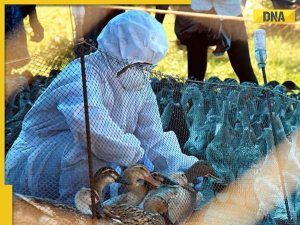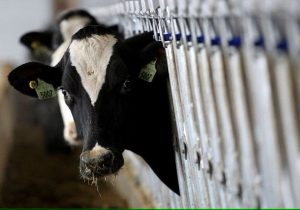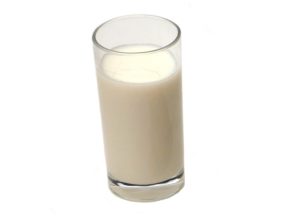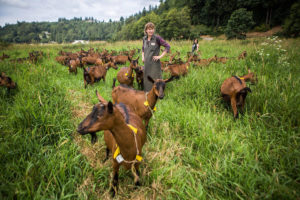Key points:
Bega Cheese’s purchase of Lion Dairy and Drinks for $534 million is “transformational”
The company has grown from a small dairy co-op to the owner of iconic Australian brands
It will increase its annual milk intake by 75 per cent to 1.7 billion litres
Bega Cheese this week acquired Lion Dairy and Drinks for $534 million just three years after doling out $460 million to acquire Vegemite and peanut butter from Mondelez International.
The Bega Cheese product mix will now include fresh milk, flavoured milk, yoghurt and juice alongside its traditional dairy business. Acquired brands will include Pura Milk, Big M and Yoplait.
The business started in 1899 with a butter factory and has become an ASX listed company worth more than $3 billion.
Max Roberts, a retired dairy farmer who has also recently retired from the Bega Cheese board after 36 years said what might seem like an overnight success has been decades in the making.
“It started when Bega decided to develop it’s own cheese brand as opposed to an industry brand,” he said.
“The company also decided to add 10 cents a kilo to it and put some of that money into a fund to run advertisements on TV.”
Later in the 1990s many small New South Wales Dairy co-ops were under pressure to merge.
In what some believe is the largest meeting of farmers at the Bega RSL Club, local dairy producers again voted unanimously to go it alone.
It fostered a desire to outperform their competitors and according to Max Roberts has been vindicated by the recent Lion deal.
“It’s now rather ironic that Bega Cheese is buying a fair bit of that merged co-op structure back in this Lion Dairy deal,” he said.
The dairy industry has faced structural upheaval, and farmers have left the industry in droves.
Even the Bega Valley has seen numbers decrease from 300 farmers on the far south coast to the 50 or so that remain in the Bega Valley today.
‘You can’t live off 20 cows any more’
Max Roberts compares the expansion of Bega Cheese to the way the dairy industry has changed — fewer farmers milking larger herds to remain profitable.
“You couldn’t stay as you were, a small regional co-op in a small south coast town,” he said.
“It’s just like you can’t live off a dairy operation with 20 cows, you can’t do that anymore.
“You need 200, 300, 400 or 500 cows and you need that scale each time you develop your business.
“Scale is very important, not only in business but in agriculture as well.”
Max Roberts said since listing on the ASX in 2011 Bega Cheese had to deliver on three levels — to the farmers with milk price, to the shareholders with a dividend and, crucially, to grow the business.
“I think that’s where a lot of co-ops fall down,” he said.
“We needed to support the business, so anytime that there was a significant dip in the market we could cover that dip with the strength of our balance sheet.
“I think that’s been one of the secrets of Bega’s success that has kept the company strong.”
Bega Cheese executive chairman Barry Irvin said the move to buy Lion Diary and Drinks was transformational for the company.
“It completes Bega in terms of where we want to get to,” he said.
“The truth is 20 years ago I may have dreamt of it, but for many years it was out of our reach.
“For Bega Cheese and its home in the Bega Valley, this deal is a tribute to all the people who have worked here over the years.
“We’ve created a very large Australian food company that owns some of Australia’s most iconic brands and I think that’s something that Australia sorely needs.”
Mark Topy, senior analyst at Select Equities, said acquiring Lion Dairy and Drinks would see Bega Cheese increase its milk intake by 75 per cent from 955 million litres to 1.7 billion litres annually.
“This takes Bega from starting as a small cooperative to being a really material player on par with Saputo, which is the current largest player domestically,” he said.
“They’ve certainly grown substantially, but it has retained that culture and focus on the farmers as well, while growing the business in a sustainable way.”
For Max Roberts, the outlook is bright for the food company.
“The sky’s the limit, and I’ve heard Barry say in the last few days that it’s now the basis for an international company as opposed to a national company and I think that’s a great vision.”








